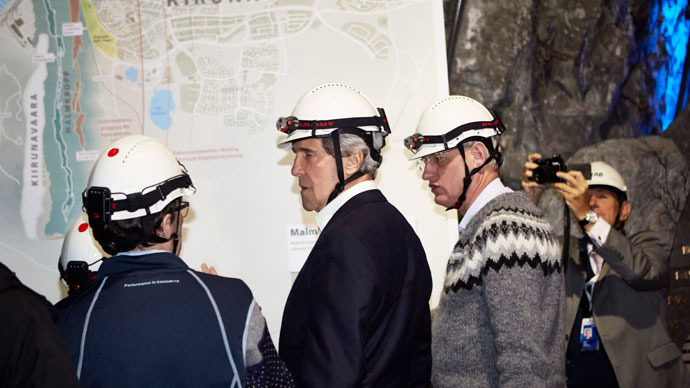Future of the Arctic in focus as more countries start playing in the region

As interest in the Arctic region, its exploration and preservation, rapidly grows, the Arctic Council is getting more hands to help out with the new Permanent Arctic Council Secretariat starting its work in northern Norway.
Eight Arctic nations, Canada, Denmark, Finland, Iceland, Norway, Russia, Sweden and the US, make the Arctic council, but as of May 15, twelve permanent observers have joined the Council. These include countries away from the Arctic circle such as China, Italy, Japan and South Korea. With Arctic ice melting and new opportunities for commercial transportation and extraction of mineral resources, new platers are being attracted to the region. The decision on permanent observers reflects growing interest toward the Arctic among non-Arctic states.
This also means that more states accept the role of the Council in defining the future of the Arctic and recognize the principle of sovereignty of the Arctic states and the responsibility for managing affairs of that vital area, which, indeed, strengthens the significance of this international body on a global scale.
At the meeting in Kiruna the ministers signed the second legally binding pan-Arctic document in history - the Agreement on Cooperation on Marine Oil Pollution Preparedness and Response in the Arctic. This, further evidence of the Arctic countries’ responsibility role for the state of affairs in the region. The next is preparation of the Agreement on Marine Oil Spill Prevention. The Arctic Council also continues to discuss the problem of black carbon - this issue requires focused and comprehensive study.
Russia welcomes the results of the completed large-scale
scientific projects of the Arctic Council accompanied by valuable
recommendations. It's believed they will help better understand
the changes taking place in the Arctic region, to forecast the
vector of their development and will be in demand when our
countries make relevant decisions.
One of the evident achievements of the Swedish presidency is the
fruitful meeting of ecology ministers of member-states this
February, the interaction between the military that started last
year.
The interest in the Arctic region is growing fast. We welcome the observers, including China and Italy, whose status is subject to the criteria approved in Nuuk. Several other applications will be considered at the next session of the Council.
The priorities of the starting Canadian presidency in the Council are shared by us – development of resources of the North, the use of Arctic maritime transport route, support for those who live in the Arctic region. They are largely in line with the Strategy of Development of the Arctic Zone of the Russian Federation and Ensuring National Security for the period till 2020.
It is important that all Arctic strategies adopted in member-states of the Council state that national interests may be fully secured only through close cooperation with partners in the region. The changes taking place in the Arctic region not only bring common challenges to us, but also open up new opportunities for cooperation.
It is hard to overestimate the importance of a rather symbolic trip of senior officials of the Arctic Council to the North Pole this April together with the Secretary of the Security Council of the Russian Federation Nikolai Patrushev and a well-known Russian polar explorer Artur Chilingarov and their photos taken against the background of flags of the eight member-states and the flag of the Arctic Council.
Russia will hold the third international Arctic Forum organized by the Russian Geographical Society in Salekhard on 24-25 September 2013.
We are convinced that all the issues not settled yet in the
Arctic region – and their number is diminishing – will be
resolved by the Arctic countries on the existing and sufficient
international and legal basis and, of course, good will.
The Arctic region is becoming an example for many other,
unfortunately, less peaceful regions. Russia has no doubts that
the future of the Arctic region will be defined by notions like
peace, sustainable development, close cooperation and strong
Arctic Council.
The statements, views and opinions expressed in this column are solely those of the author and do not necessarily represent those of RT.
The statements, views and opinions expressed in this column are solely those of the author and do not necessarily represent those of RT.













